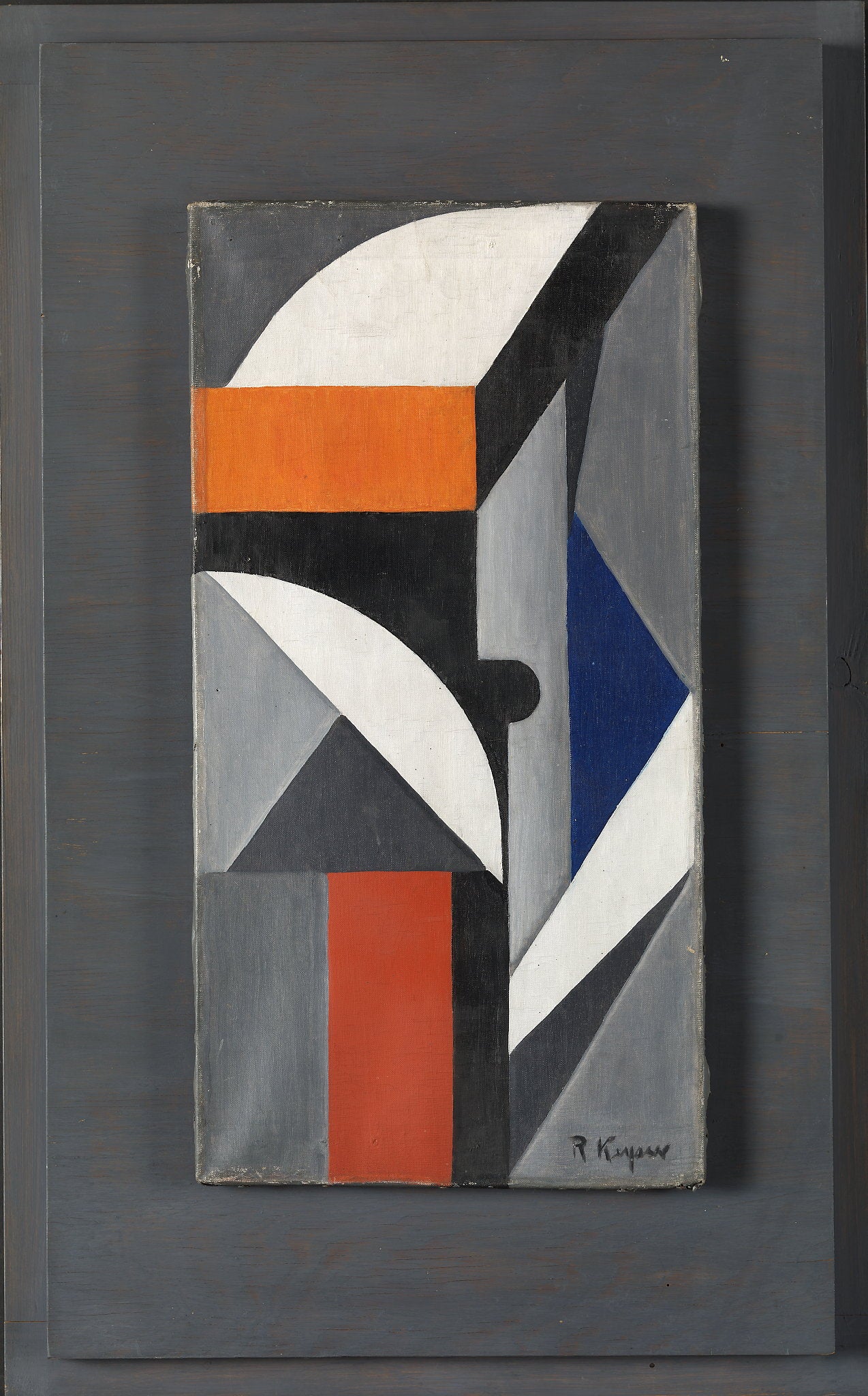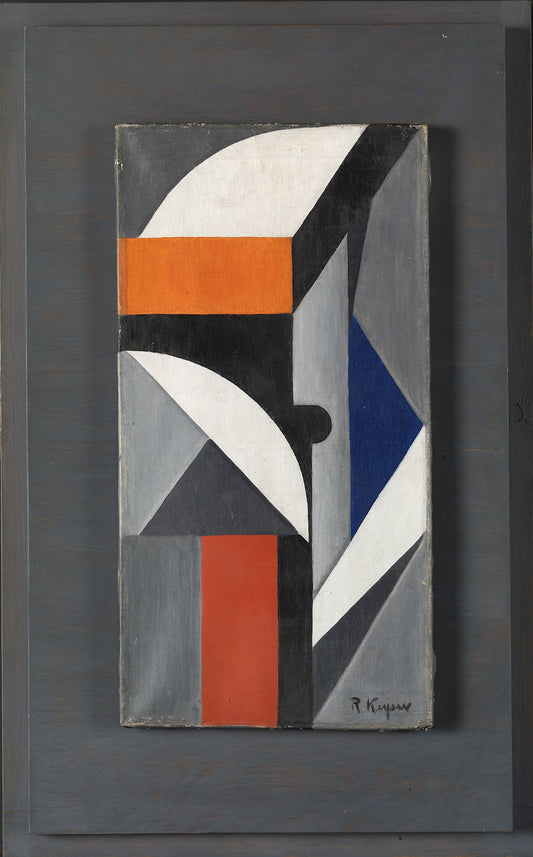Ragnhild Keyser
The bridge and the clock
The bridge and the clock
Couldn't load pickup availability
High-quality reproductions with authentic colors and details from DAIDDA's exclusive collaboration with the National Museum. Posters are printed on 230g Litho White Matt photo paper with white border and logo. Artprints are printed on 260g Museum Natural Rag 100% cotton paper without white border and logo. Produced to order in our own print lab.
About the original:
Dating: Approx. 1925
Other titles: Le pont et la cloche (FRA)
The Bridge and the Clock (ENG)
Designation: Painting
Material and technique: Oil on canvas
Technique: Oil
Material: Canvas
Dimensions: 47 x 24.5 cm
Subject: Visual arts
Classification: 532 - Visual arts
Motif: Abstract
Acquisition: Purchased 1977
Inventory no.: NG.M.03133
Part of exhibition: Art 3. Works from the collection 1814-1950, 2007 - 2011
Art audience. The National Museum in the Kunststallen, 2021
Registration level: Single object
Owner and collection: The National Museum of Art, Architecture and Design, Visual Art Collections
Shipping and returns
Shipping and returns
Shipping: We deliver to Scandinavia, the EU, the USA and several other countries. Please contact us if your country is not listed and we will try to arrange delivery.
Delivery time: 2-5 days within Norway, 7 days in Europe, 14 days globally.
Packaging: Our products are made to order and sent rolled in environmentally friendly packaging.
Customs Fees: International orders may be subject to customs fees, which are not included in shipping costs.
Return policy: You can return images within 14 days. See our returns page for more information.
Secure Payment: We never store your payment details. See our privacy policy for details.

See all works
-
Still life with jar, bowl and onion
Vendor:Ragnhild KeyserRegular price From 150,00 NOKRegular priceUnit price per -
The bridge and the clock
Vendor:Ragnhild KeyserRegular price From 150,00 NOKRegular priceUnit price per

Ragnhild Keyser
Ragnhild Keyser was a Norwegian painter who was born in Oslo. She was a student of famous artists such as Harriet Backer and Pola Gauguin, and later she studied under André Lhote, Fernand Léger and Araujo in Paris, where she spent a lot of time. She also studied under Georg Jacobsen in Oslo.
The National Museum/National Gallery in Oslo owns two of her early cubist compositions. In the early 1920s, Keyser painted a series of compositions that transformed landscape, houses and trees into a fixed architectural whole in a semi-Cubist manner (Cahors 1922). Several of the works are beautiful, if somewhat hesitant, carried out in a restrained color scheme dominated by earthy brown, gray and olive green. From 1922–23, some smaller figure compositions show the influence of the teacher André Lhote. From 1924 (or 1925), Keyser studied under Fernand Léger at the Académie Moderne, and her pictures from the next few years are executed in a strictly constructive style. The motif is often an arrangement of everyday objects, a chair, urn, stack of boxes, etc., sometimes also a human figure or torso, but the motif is subjected to a drastic process of abstraction and transformed into a concretist surface composition where only certain characterizing profiles suggest the starting point.
In the mid-20s, Keyser participated in several exhibitions in Paris, and three of her finest works (now in the Yale University Art Gallery) were purchased by the American art collector Katherine Dreier. She also participated in the exhibition "8 Scandinavian Cubists" at the Kunstnerforbundet in 1927, but after she settled in Norway, she abandoned this advanced painting and adapted to a more naturalistic form of expression.




